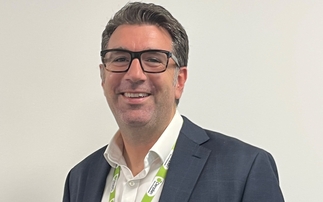As the NHS undergoes huge upheaval and with challenging demographics,future universal access to healthcare looks uncertain. Paul Shires examines the role of cashplans in maintaining healthcare provision.
So large that you can see it from outer space. That was the opinion of NHS chief executive Sir David Nicholson on the Health and Social Care Bill reforms that came into effect on 1 April 2013, and he was not too far from the truth.
While the impact of the reforms may not be immediately noticeable to patients, the scale of change in the NHS has certainly been sizeable. All of England's 152 Primary Care Trusts (PCTs) have now been scrapped, and about 60% of the NHS budget has been handed over to new regional GP-led Clinical Commissioning Groups (CCGs) to choose which services they fund in their area.
But with the media reporting conflicting accounts about what the changes will actually mean for the NHS and patient care, it can be difficult to decipher the role that cashplan providers will need to play in helping England's workers continue to access healthcare.
On the day the changes came into force, Anna Soubry, the health minister claimed that the reforms will mean the health service will "improve, work smarter and build an NHS that delivers high-quality, compassionate care for patients". But in a report published on BBC News online, GP John Hughes expressed concern, saying: "The GPs aren't really free to do what they like with the money as a lot of people seem to think."
Whatever your opinion, the fact is that while the changes will hand over more power to the patient-facing GPs, unfortunately the NHS has to make savings somewhere to meet the government's target of £20bn by 2015. So, as the CCGs assess the healthcare needs of their local populations, it is inevitable that some services will be reduced or even cease altogether.
And as the extensive media coverage about the NHS changes fuels the public arena with rumours of privatisation, one has to pose the question, where do cashplan providers sit? Are we viewed as organisations encouraging patients to turn to private treatment? Or are we the saving grace at a time when the health service cannot provide its full range of services for free?
The cashplan ethos
Cashplan providers have always existed to complement the NHS and support it in times of hardship by ensuring that when it cannot provide every service for everyone, pressure on the service is eased somewhat by allowing patients to seek alternative private treatment and care, without worrying about the cost.
The entire cashplan sector has built upon and shaped around this ethos of working with the NHS, not against it. Benefits and services have evolved in recent years to cover treatments that the health service cannot always provide quickly, under such heavy financial scrutiny, such as physiotherapy, counselling services and non-urgent surgery.











